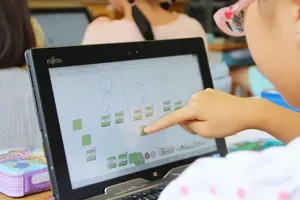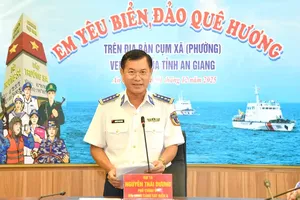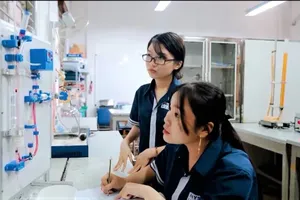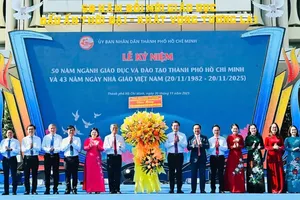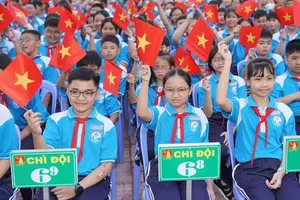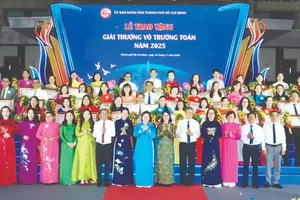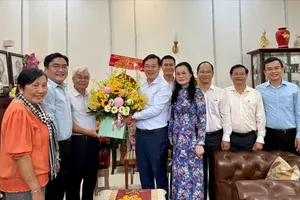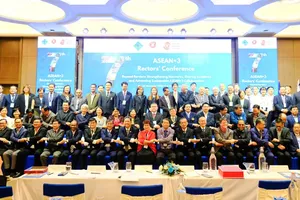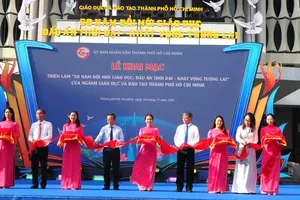
Last week, high schools across HCMC began rolling out information for the upcoming academic year, but one topic dominated parents’ attention: the official list of required textbooks.
For parents like Xuan Mai, whose child is entering the 11th grade at Marie Curie High School in HCMC’s Xuan Hoa Ward, the process has been a source of anxiety. She noted that the school released its 2025-2026 textbook list in late June, a move intended to give families a head start. The reality, however, has been more complicated. “Because the subjects pull from many different textbook series, we still haven’t been able to get all the books for our child”, she explained.
This situation feeds into a familiar problem. For years, a “textbook fever” has gripped the country just before the start of school, leading to shortages. This year, the situation is compounded by the fact that textbooks required revisions to align with recent changes in the country’s administrative districts, making parents even more watchful of which books schools will ultimately select.
This widespread concern reached the national level when voters in Hung Yen Province petitioned the Ministry of Education and Training to adopt a single, unified set of textbooks for the entire country. Responding to the petition, Minister of Education and Training Nguyen Kim Son clarified the ministry’s position.
He explained that since the 2020-2021 academic year, the ministry has implemented the 2018 General Education Program (GEP) under the 2019 Education Law. This framework establishes a unified set of learning outcomes for every subject nationwide. The textbooks, he asserted, are simply the materials used to achieve those outcomes.
While the various textbook series might differ in their examples, presentation, and teaching methods, all must adhere to the same curricular standards. “Therefore, students using different books are not at a disadvantage in terms of core knowledge or required skills”, the minister stated. On the contrary, he argued, having a rich variety of learning materials empowers schools to teach more proactively and effectively.
Looking ahead, Minister Nguyen Kim Son affirmed that the ministry will continue to innovate its teaching and assessment methods, review the policy’s implementation on the ground, and listen carefully to voter feedback to better serve learners.
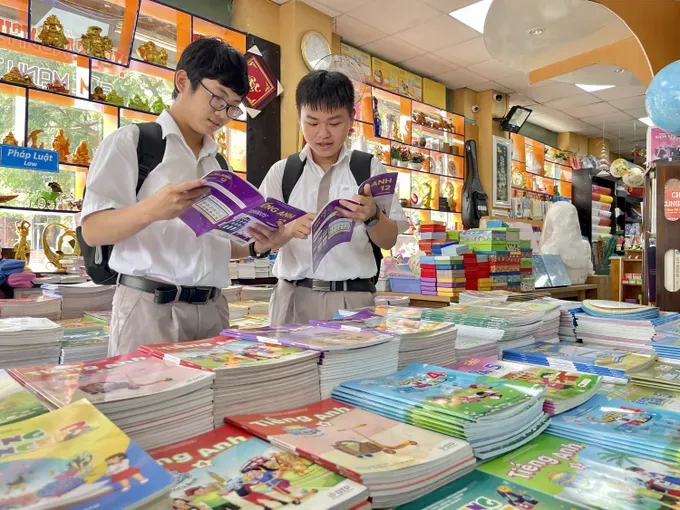
According to Assoc Prof Dr Do Ngoc Thong, Chief Editor of the 2018 GEP’s literature subject and a key architect of the post-2015 reforms, he is constantly fielding questions from teachers about the policy’s future. “They ask if we’re going back to a single, common textbook for the whole country”, he said. His answer is unequivocal. “I tell them to trust the resolutions issued by the Party and the State. That is our most important legal foundation.”
He pointed out that before foundational policies like Resolution No.29-NQ/TW (2013) and Resolution No.88/2014/QH13 were passed, the Ministry of Education and Training had already spent years clarifying the pros and cons of the multi-textbook approach. For more than a decade, the debate has resurfaced time and again in the media and on the floor of the National Assembly.
In the face of this persistent debate, the Politburo recently issued Conclusion No.91-KL/TW (2024), which explicitly reaffirmed the national strategy to continue with one unified general education program while allowing for one or more textbooks for each subject, developed through a market-driven compilation process.
“It’s rare for any single policy to perfectly address every situation”, Dr Thong reflected. “We have to choose the best available option that meets the nation’s needs in a new era and aligns with international trends. The shortcomings we see can be overcome gradually, from many sides. We shouldn’t, as the saying goes, throw the baby out with the bathwater.”
This sentiment was echoed at the 2025 Conference of Education and Training Department Directors, held on July 28-29. There, Ministry leadership declared the 2018 GEP a resounding success, having been implemented from grade 1 to 12 nationwide. They argued the multi-textbook approach has been a key driver in shifting education from rote memorization to competency-based development.
This pedagogical renewal, officials said, has helped foster creativity and proactivity in students, with teachers now acting as guides and facilitators. Director Thai Van Tai of the Department of General Education reported that year-end assessments since 2020 have consistently shown that students are meeting the program’s standards.
The successful completion of the 2025 National High School Graduation Exam, in particular, was hailed as the capstone of this nationwide reform cycle. It served not only as a tool to assess students and grant diplomas but also as a crucial benchmark for evaluating the quality of teaching across the country. It’s this data that provides an important foundation for refining the reforms in the years to come.



